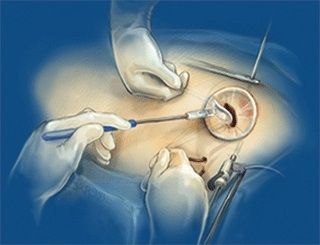Evaluation Of Various Port Positions For Minimally Access Cardiothoracic Procedures
EVALUATION OF VARIOUS PORT POSITIONS FOR MINIMALLY ACCESS CARDIOTHORACIC PROCEDURES
DR. MD. ANWARUL ISLAM (MBBS, F.MAS, D.MAS)
ABSTRACT
Background:
Video-assisted thoracoscopic surgery (VATS) refers to minimally invasive thoracic surgical (MITS) procedures used to diagnose or treat conditions of the chest (pulmonary, cardiac, mediastinal, chest wall). Most of those procedures traditionally performed with open thoracotomy can be done using smaller incisions with video assistance. Roboticassisted thoracic surgery (RATS), a related new technology, uses computers to help surgeon for precise tremor less instrument control in a confined space. Baseball Diamond Principle of port position (BDP) is the conventional procedure whereas Triangle Target Principle of port position (TTP), another procedure, is also used for minimal access cardiothoracic surgery. Different manipulation angles (300, 600 and 900) are used to perform the task. Every principle of port placement has both advantages and disadvantages for task performance regarding time required, errors occurred and surgeon’s discomfort during operation.
Objectives:
To evaluate and compare task performance at different port positions during Minimally Access Cardiothoracic Procedures in swine models.
Methodology:
The study is a Prospective Experimental Study done in partial fulfillment for the award of Masters in Minimal Access Surgery (M.MAS) degree from Singhania University, Rajsthan, India. The Study was granted and conducted at the Institute of Minimal Access Surgery at the World Laparoscopy Hospital, Gurgaon, NCR Delhi, India under the regulation of Singhania University, India. 3 thoracic & 2 cardiac procedure were selected for this study. Total Thirty (30) Video-Assisted Thoracic Surgery (VATS) procedures were conducted on 30 swine models at the Institute of Minimal Access Surgery, World Laparoscopy Hospital, Gurgaon India over 9 months between 15/01/2018 and 15/10/2018. At the end of the procedure Euthanasia was conducted humanly by giving high dose of Succinylcholine and the carcasses disposed appropriately as per regulation under the provisions of Section 15 of the Prevention of Cruelty to Animals Act, 1960 and the rules under the Act of 1998 and 2001.
Results:
A total of 30 procedures were done in this study. Triangle Port Placement (TTP) was used. The details of the procedures are- 6 (20%) Lung Resection, 6 (20%) Thymectomy, 6 (20%) Atrial Septal Defect closure, 6 (20%) Internal Thoracic Artery Harvesting for Endoscopic CABG and 6 (20%) Oesophagectomy on 30 animals through minimal access techniques. It is to evaluate the Execution time (sum of the ports Access
Time and the Actual Procedure Time), Error rates and the Surgeon’s discomfort for each of the three angles of manipulation. The average timing of all tasks was shorter with 60º manipulation and all were reproducible. Irrespective of the difficulty of the tasks then it was followed by 30º and 90º angle. The closer the manipulation angle is to the 90º and above, the more the likely to take longer operative time. It may be due to fatigue from increased elevation angle and shoulder over stretching.
It was demonstrated that surgeon’s discomfort level was least at 60 degree port position.
Conclusion:
There is no anatomical landmark for port placement in Cardio-Thoracic procedure. The average timing of all tasks was shorter, less errors and surgeon’s discomfort was lesser operating with 60º manipulation angle.
Clich here to read complete thesis
